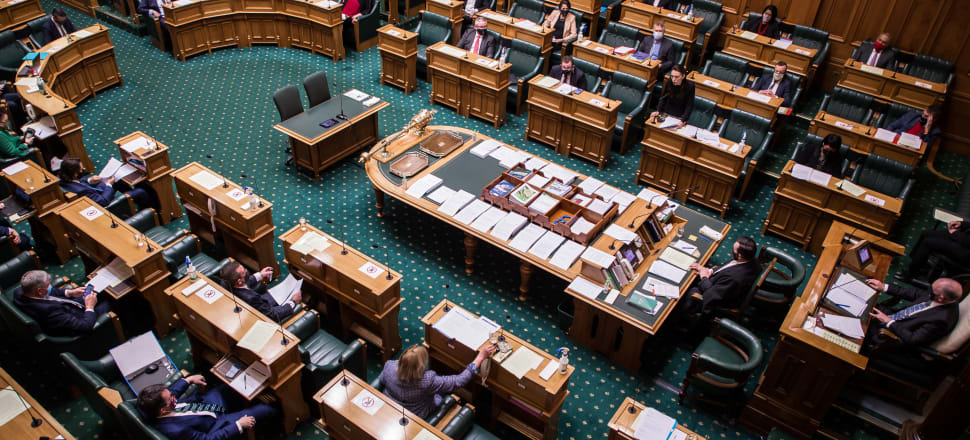
The public will have their say on proposed changes to the way Parliament is run when the standing orders committee meets next month
Speaker of the House Adrian Rurawhe will next month chair a public hearing of the standing orders committee to address potential changes to the way Parliament business is conducted.
Both leader of the house, Chris Hipkins, and his shadow counterpart, Chris Bishop, have previously indicated they would like to see some changes to the way the House is run in an attempt to make it more democratic.
Rurawhe told Newsroom any potential changes were currently before the committee, which he chairs, and on that basis, he wasn’t prepared to provide a personal view on what he thought would improve the running of Parliament.
The standing orders committee will hear public submissions on November 10 as part of its three-year review.
Former speaker Trevor Mallard was a supporter of making government MPs accountable - in 2021 he rebuked Labour’s health committee chairperson, Liz Craig, for not running the committee “in compliance with the spirit of the last Standing Orders”.
To make up for it he rewarded National four extra supplementary questions in the House to use to interrogate then-Covid response minister Chris Hipkins.
Labour Party select committee chairs have been under fire from not only National MPs, but also the Green Party’s Chlöe Swarbrick, who has repeatedly tried to get approval for Treasury to come before the Finance and Expenditure committee.
But increasingly, cross-party support is growing for change when it comes to select committees and Question Time.
“Parliament is at its best when we’re scrutinising the Government for its failures or shortcomings, and we’ve all watched enough patsy questions to know they don’t always achieve that." – National's deputy leader Nicola Willis
Acting Prime Minister Grant Robertson told Newsroom patsy questions - where backbench Government MPs ask easy questions that allow a minister to speak positively about their own work - “is probably something we could work on”.
“Adrian has made that point to us, about wanting more shorter answers, and getting more facts across.
“I still think there’s a role for the government to be able to ask questions of itself, but we have to be responsible in that,” Robertson said.
National’s deputy leader Nicola Willis told Newsroom “it’s like a load lifted” since Mallard left the Speaker’s chair and was replaced by Rurawhe.
“It’s a much nicer place to be because there’s a sense of firm but fair. Adrian is enforcing the rules as he should, but in a gentle way and in a way that is respectful of the fact we go to Parliament to have a debate.”
Willis said she applauded Rurawhe for how he has tackled the Speaker role so far.
On whether there should be any further changes to how Question Time is conducted, Willis said it was worth MPs having a discussion about the use of patsy questions.
“Parliament is at its best when we’re scrutinising the Government for its failures or shortcomings, and we’ve all watched enough patsy questions to know they don’t always achieve that,” she said.







